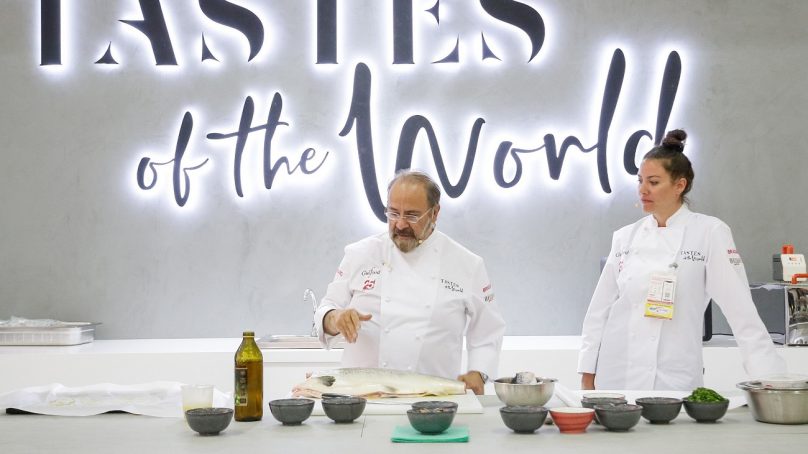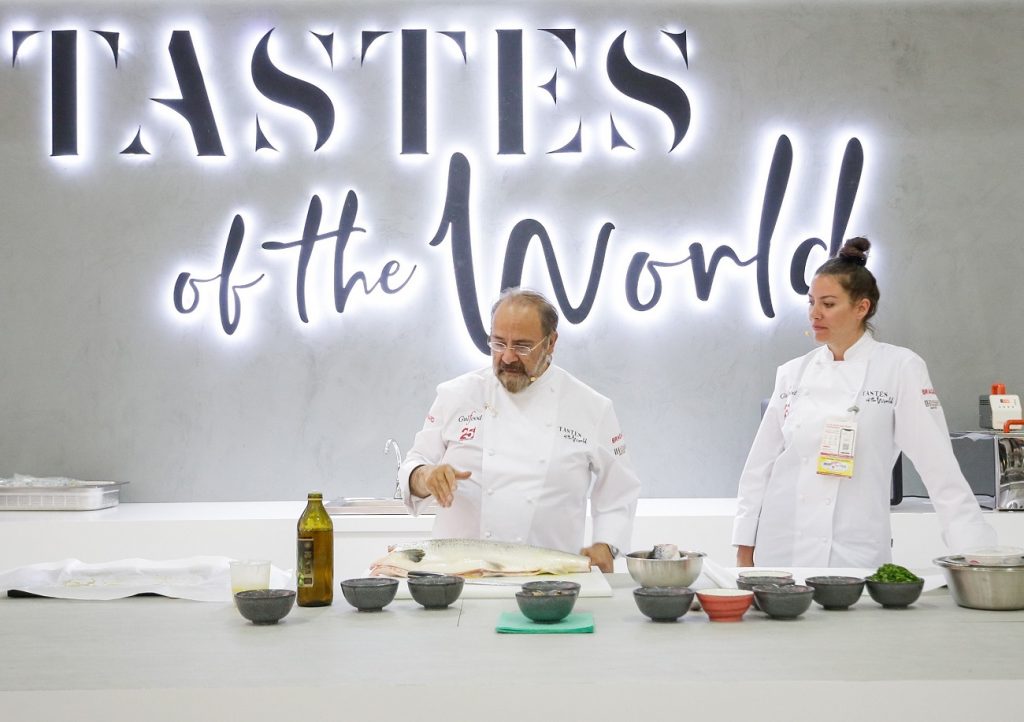
 The 25th edition of Gulfood was inaugurated on February 16, with an invitation for F&B producers to demonstrate how they are ‘Rethinking Food’ to serve a global population that is set to race past eight billion by 2030.
The 25th edition of Gulfood was inaugurated on February 16, with an invitation for F&B producers to demonstrate how they are ‘Rethinking Food’ to serve a global population that is set to race past eight billion by 2030.
The five-day mega exhibition, which runs until Thursday 20 February, has attracted high-calibre interest from government ministers, trade delegations and national organizations, showcasing the latest F&B innovations and exploring exhaustive business opportunities. Worth mentioning that the global F&B sector is seeking to keep pace with changing consumer habits and spiraling spending, which now stands at more than USD 7.2 trillion annually, according to the Gulfood 2020 Industry Outlook Report.
“The rising demand for sustainability in the F&B sector, coupled with consumer trends that have shifted dramatically and the growing shift away from animal-based foods, headline the Gulfood 2020 agenda. The challenge for the F&B industry is to fast-track innovation and provide safe and sustainable food sources for an increasingly eco-conscious global population. Gulfood’s 25th anniversary is the perfect place to experience, analyse and collaborate on developing solutions that will propel the F&B sector into this thrilling new decade of opportunity,” said Trixie LohMirmand, Executive Vice President, Exhibitions and Events, DWTC.
Running alongside the main exhibition, the second edition of the three-day Gulfood Innovation Summit will bring together major players from across the international industry to examine the latest challenges and opportunities in the global F&B market.
To mark its silver anniversary, Gulfood 2020 has rolled out a host of new features and initiatives to further enhance the visitor experience.
With the food rethink narrative serving as the show’s guiding theme, a brand-new feature titled ‘STREAT will make its debut with street food pioneers Chef Chan Hon Meng, the first Michelin-starred hawker (street food) chef from Singapore’s celebrated Liao Fan Hawker Chan, and Tsuta by Chef Yuki Onishi, founder and executive chef of the Tsuta Japanese Soba Noodles, the world’s first Michelin-starred Ramen eatery.
Tastes of the World, one of Gulfood’s most popular features, returns in 2020 with an extraordinary line-up of renowned food change-makers and Michelin-starred chefs showcasing cuisine innovation. Michelin-starred chef Massimo Bottura is joined by three Michelin-starred chef Elena Arzak, and chef Paco Pre. Joining the international chef trio are the region’s top culinary talents, including Nick Alvis and Scott Price of acclaimed Dubai restaurant Folly; Gregoire Berger of Ossiano, and Akmal Anuar of 3 Fils.
“I am impressed with the new culinary ideas in the UAE. The country is a vibrant place to dine right now and is also very inspiring for chefs and gourmands who are constantly searching for new cultural interactions,” said Bottura. “At Gulfood, I am showcasing a collection of our most iconic dishes from France as we travel through the evolution of our culinary world.”
Gulfood’s Startup program will see entrepreneurs demonstrate culinary breakthroughs that set the course for a more sustainable F&B sector future, while providing several young innovators the chance to exhibit disruptive products and prototypes to a discerning buying audience. The Gulfood Innovation Awards provide a celebration of excellence across brands in the F&B sector, while the Chef Tours take visitors on bespoke journeys into the latest global culinary trends.
Starting on Monday 17 and running until Wednesday 19 February, the Gulfood Innovation Summit has attracted a power-packed line-up of speakers including high-ranking ministers, thought-leaders and industry stalwarts. Speakers taking to the Summit stage include HE Mariam bint Mohammed Saeed Hareb Al Mehairi, Minister of State for Food Security of the UAE; HH Prince Waleed Al Saud, President – Saudi Arabia Restaurant and Cafés Association, and Darine Al Khatib, Goodwill Ambassador, Food and Agriculture Organisation of the United Nations.
Pertinent topics on the Summit agenda include the reality behind calls for alternative meat consumption, the challenges faced by F&B regulatory bodies to stay in step with industry developments, and the need to develop solutions which provide alternative proteins in regions battling population surges and climate change, among others.
Add to Favorites













